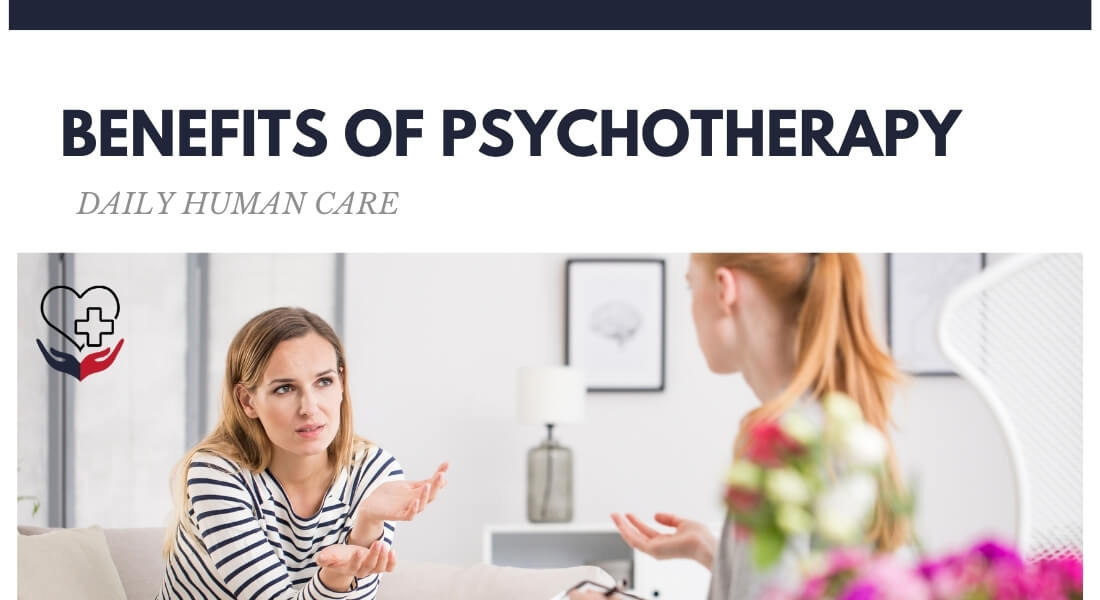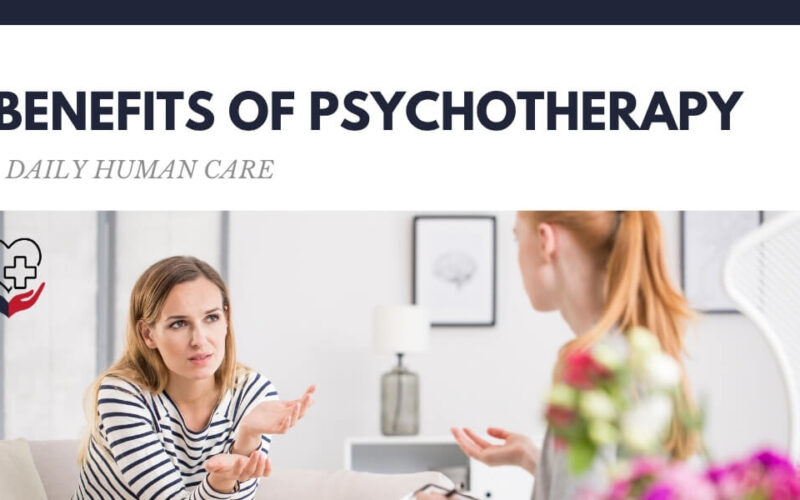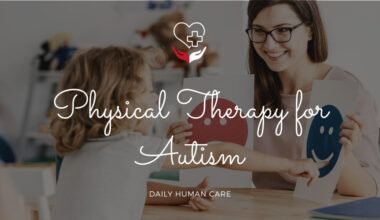This article by Daily Human Care is all about the Benefits of Psychotherapy. Read it and enjoy it!
Table of Contents
Psychotherapy:
According to the oxford dictionary,
Psychotherapy is the treatment of mental disorder by psychological rather than medical means.
Psychotherapy is a general concept for resolving psychological problems by working with a psychiatrist, counselor or another mental health professional.
Psychoanalysis allows you to know how to handle your lives and to respond with appropriate communication skills to challenging circumstances.
You can learn about yourself and others, especially about your family and others near you, through psychotherapy. In some cases, joint counselling sessions are given for spouses or families.
You will routinely visit your therapist once a week for months or even years. Sessions last approximately 50 minutes but group therapy also take a little longer.
It is a mentally based treatment and is also referred to as ‘talking therapy’ or basically ‘therapy,’ and also there are a variety of benefits of psychotherapy.
Some common problems and diseases that can be treated effectively with psychotherapy are:
- Smoking and addiction
- Loss handling, sadness
- Misuse of sex, physical or emotionally
- Difficulties with the family
- Morality
- Disorders of eating
- Stress
- Phobias and so on.
Do you know the difference between counselling and psychotherapy? If not then click here.
Psychologists or Psychotherapist:
Psychotherapists are specialists in the area of mental health trained to respond to people’s issues to try to find answers to them.
A psychotherapist will tell you about the benefits of psychotherapy and offer techniques for problem-solving and if appropriate, help you improve your attitudes and behaviour, and listen and discuss important problems with you.
Some therapists teach you particular skills to tolerate unpleasant feelings, to manage relationships better, or to change behaviour. It is also possible to inspire you to create your solutions. Community counselling offers advice and motivation to each other.
The care will be treated confidentially by a psychiatrist. This means that with personal or embarrassing details, you can trust them.
Format of psychotherapy:
Psychotherapy may be performed in different ways depending on the type of aid and assistance that a person requires and the condition that they deal with. The therapist will assess the format that best suits the needs of the patient.
Personal therapy
A patient is counselled individually to resolve mental illness, a disability or personal challenge through his or her therapist. Therapy and therapy are not often used to treat mental illness: people frequently receive psychological support in managing depression, ending a relationship, coping with self-esteem or something else. This form of treatment proved very effective as it helps the patient to cope with their problems and develop healthier strategies for dealing with them personal therapy often explains about benefits of psychotherapy.
Therapy for community or group
Therapy takes place in a community of three-four or more participants. Group therapy provides a healthy, judgment-free atmosphere in which people can share their experiences and understand their problems better. They will draw strength from the successes of each other and realize that in everything they go through, they aren’t alone. This therapy is especially effective in people who struggle with or cope with addiction.
Therapy for partners
It is built primarily for two people in a relationship who encounter tension or issues as a therapy session. It has traditionally been used in a romantic relationship by married people or couples. Over time, however, the concept of pair therapy has expanded to include two individuals who encounter relationship difficulties, such as a mother and a daughter, two friends etc. This form of therapy aims to enhance communication and make it easier for the two parties to look at and appreciate things from different points of view. This therapy also explains the benefits of psychotherapy to couples.
Therapy for the family
The idea of family therapy is based on the conviction that family support enhances the efficacy and success of a patient’s care. It also offers a convenient environment in which families can address freely the problems they are facing or experiencing as a result of the issue. This kind of care can be Specially helpful if violence happens in the family, or if anyone has psychiatric or addictive disorders since this can affect anyone involved.
Psychotherapeutic styles
A variety of effective psychotherapy forms exist. Certain illnesses and disorders are better treated than others. Therapeutics uses a mix of methods in many situations. Your therapist will understand your circumstances and interests to decide the best strategy for you. Benefits of psychotherapy come with different styles or types. Although there are various forms of treatments, there have been several successful psychotherapy techniques:
- Cognitive behavioural therapy, helping to recognise and replace stable, constructive and dysfunctional attitudes and behaviours;
- Dialectical behaviour therapy is a form of CBT that teaches you to conduct skills to cope with stress and control your feelings.
- Admission and dedication therapy that helps you understand your thoughts and feelings and commit to change, improve your ability to cope and adapt to situations
- Psychodynamic and psychoanalytical counselling to increase understanding of unconscious thoughts and actions, to gain new motive perspectives and dispute resolution.
- Relational psychotherapy that discusses your current relationship issues to other people and improves your interpersonal skills — how you communicate with others such as family, friends and colleagues.
- Advanced psychotherapy to improve your capacity to deal with stress and challenging circumstances
Benefits of psychotherapy:

These are the following psychotherapy life-changing benefits:
- Have a comfortable and confidential space to address important personal problems
- Clear comprehension of diagnosis and signs
- Be aware of more successful treatment plans
- Reduce or remove anxiety and depression
- Decrease and prescribe negative or damaging emotions, feelings and conduct
- Comprehension and processing of stressful events
- Avoid using alcohol, narcotics and tobacco
- Dispossession or violent impulses and acts
- Security and risk reduction strategy for emergencies
- Learn how to tackle stressful situations efficiently
- Enhance sleep, food and habits of regular exercise
- Set up new safe behaviours
- Have better at home, school or work relationships
- Learn to be more attentive, less stressful and comfortable
- Get confident and relaxed in social settings
- Acknowledge the ideas of people and how to deal with them
- Enhance concentration, focus, organisation and teamwork skills
- Understand about and advocate for autonomy and collective services
- Get better treatment or help for others is also comes in the category of benefits of psychotherapy
- Enhancing general well-being and security of the body and mind
- Aid with Depression Support
- AID with anticipation bits of help
- Aid with operations/complications
- Information with related knowledge Help
- Learn better skills in connection.
- Comprehension and personal priorities.
- Take ailments including depression, addictive habits and disordered eating over.
- Increases positive mindset.
- Enhanced general feeling.
- Substitutes constructive thought for self-doubt.
- Learn methods of relaxation to manage everyday stress efficiently.
Hope you enjoyed it, Visit Daily Human Care for more interesting health articles.




